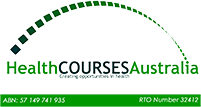
Popular courses in Melbourne
Certificate IV in Mental Health
- There are no mandated entry requirements.




Certificate III in Individual Support (Disability)
- There are no mandated entry requirements.



Diploma of Leadership and Management
- There are no mandated entry requirements.






Certificate III in Individual Support (Ageing and Disability)
- There are no mandated entry requirements.



Certificate III in Individual Support (Ageing)
- There are no mandated entry requirements.


Certificate III in Community Services
- There are no mandated entry requirements.



Diploma of Counselling
- There are no mandated entry requirements.




Diploma of Community Services
- There are no mandated entry requirements.


Certificate IV in Community Services
- There are no mandated entry requirements.


Dual Certificate IV in Alcohol and Other Drugs & Certificate IV in Mental Health
- There are no mandated entry requirements.


Diploma of Community Services (Case Management)
- There are no mandated entry requirements.
 Upskilled
Upskilled
Certificate IV in Youth Work
- There are no mandated entry requirements.
 Hader Institute of Education
Hader Institute of Education
Diploma of Mental Health
- There are no mandated entry requirements.


Certificate III in Individual Support
- There are no mandated entry requirements.
 Phillips Institute
Phillips Institute
Certificate IV In Ageing Support
- There are no mandated entry requirements.


Diploma of Social Media Marketing
- There are no mandated entry requirements.


Induction
- There are no mandated entry requirements.
 genU Training
genU Training
Certificate III in Allied Health Assistance
- There are no mandated entry requirements.
 Foundation Education
Foundation Education
Diploma of Youth Work
- There are no mandated entry requirements.
 Hader Institute of Education
Hader Institute of Education
Certificate IV in Allied Health Assistance
- There are no mandated entry requirements.
 Foundation Education
Foundation Education
Frequently Asked Questions
Yes, there are course providers who offer 20 qualification(s) in Melbourne. Find a course provider near you. Once you make an enquiry, a course advisor will get in touch to discuss your study options and course fees.
Written by Courses.com.au Team
There are several campuses within the Melbourne area that provide social work training. The nearest campus is located right in the center of Melbourne. You can also study a social work course through online, distance or traineeship learning. Find a course provider that best suits your needs.
Written by Courses.com.au Team
Potential job roles within social work includes community development manager, social worker or outreach worker (to name a few). Browse related occupations to find a career that suits your needs.
Written by Courses.com.au Team
Further reading


Certificate III in Pathology Collection: Everything You Need to Know
10th February 2025)
